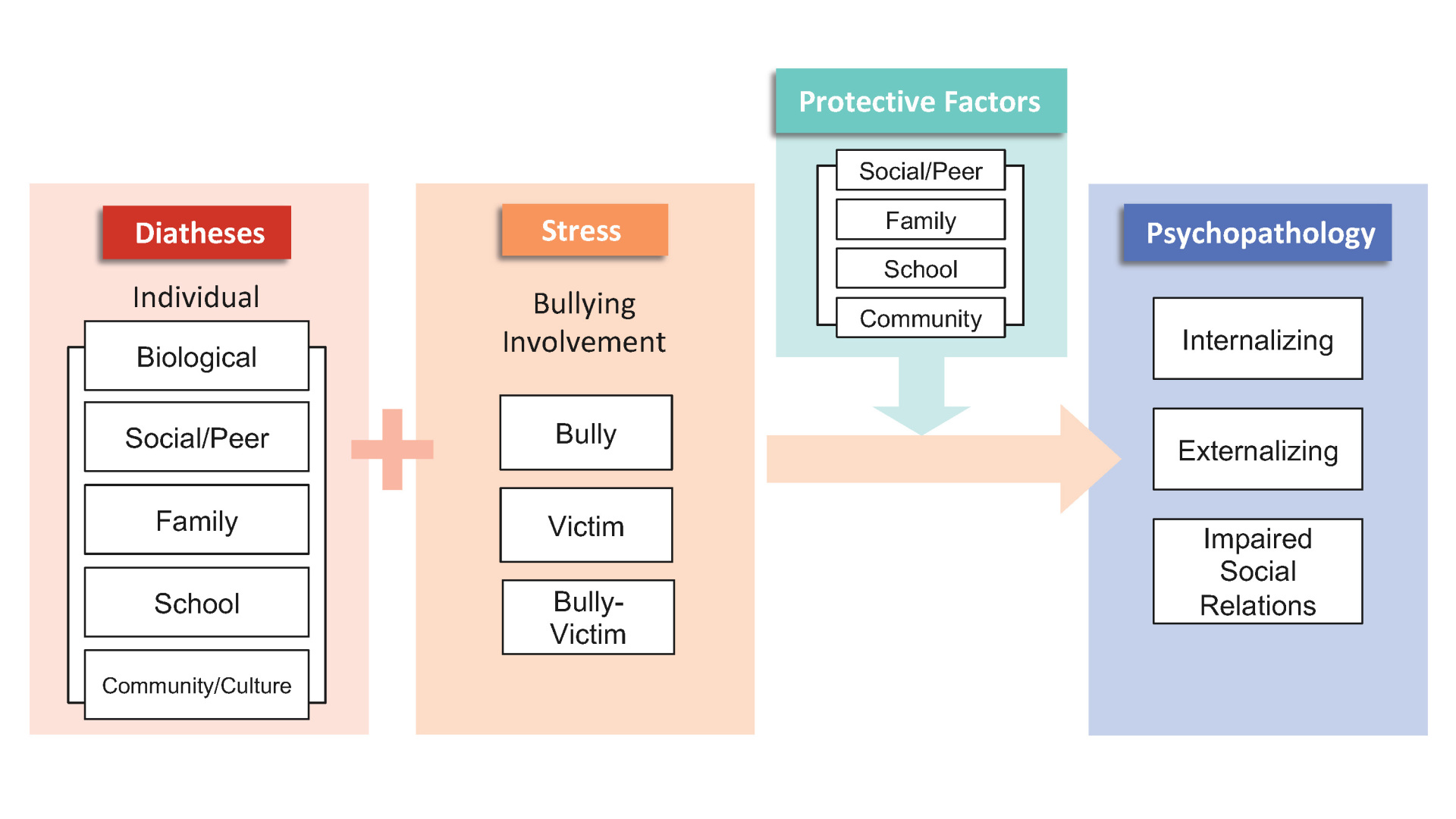The nonprofit BRAVE lab supports translational research designed to foster positive, accepting communities free from bullying and other aggressive behaviors. Studies conducted through the lab focus on identifying and addressing the complex personal, social, and cultural factors underlying such behaviors, thereby advancing practical solutions to promote healthy relationships within families, schools, and communities.
The Target Bullying Research Project was initiated in 1998. The BRAVE lab has supported studies examining bullying prevention and intervention among school-aged youth. Since its inception, the project's studies have analyzed bullying through the lens of both cross-sectional and longitudinal research designs. In exploring the relationship between bullying and mental health, we have examined:
- the interactions among depression, anxiety, and involvement in bullying
- the links between aggression, anger, and bullying
- the effects of a cognitive-behavioral intervention on reducing bullying behaviors
- the relationship between school climate and bullying behaviors
- the development of a comprehensive survey to assess bullying, victimization, and bystander behaviors
Social-Ecological Diathesis-Stress Model of Bullying

Ending Bullying through Translational Research
Current Research Projects
Current research projects include: examination of a cognitive-behavioral intervention for bullying behaviors; the development of an online support group for victims of bullying; the development of a reliable and valid measure of kindness and bravery; and a cross-cultural examination of teacher responses to bias-based bullying situations. To learn more about our current work, see the below link.
Previous Research Projects
Previous research projects have included examination of the connections among body image, medical diagnoses and victimization; school-based participatory action research and its effects on bullying; bullying's association with hazing; the correlation between bullying and empathy; the influence of youth empowerment to reduce bullying among peers; and examination of experiences related to the impact of COVID-19, subjective well-being, interpersonal supports, and social media engagement. To learn more about our previous work, see the below link.